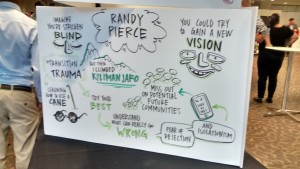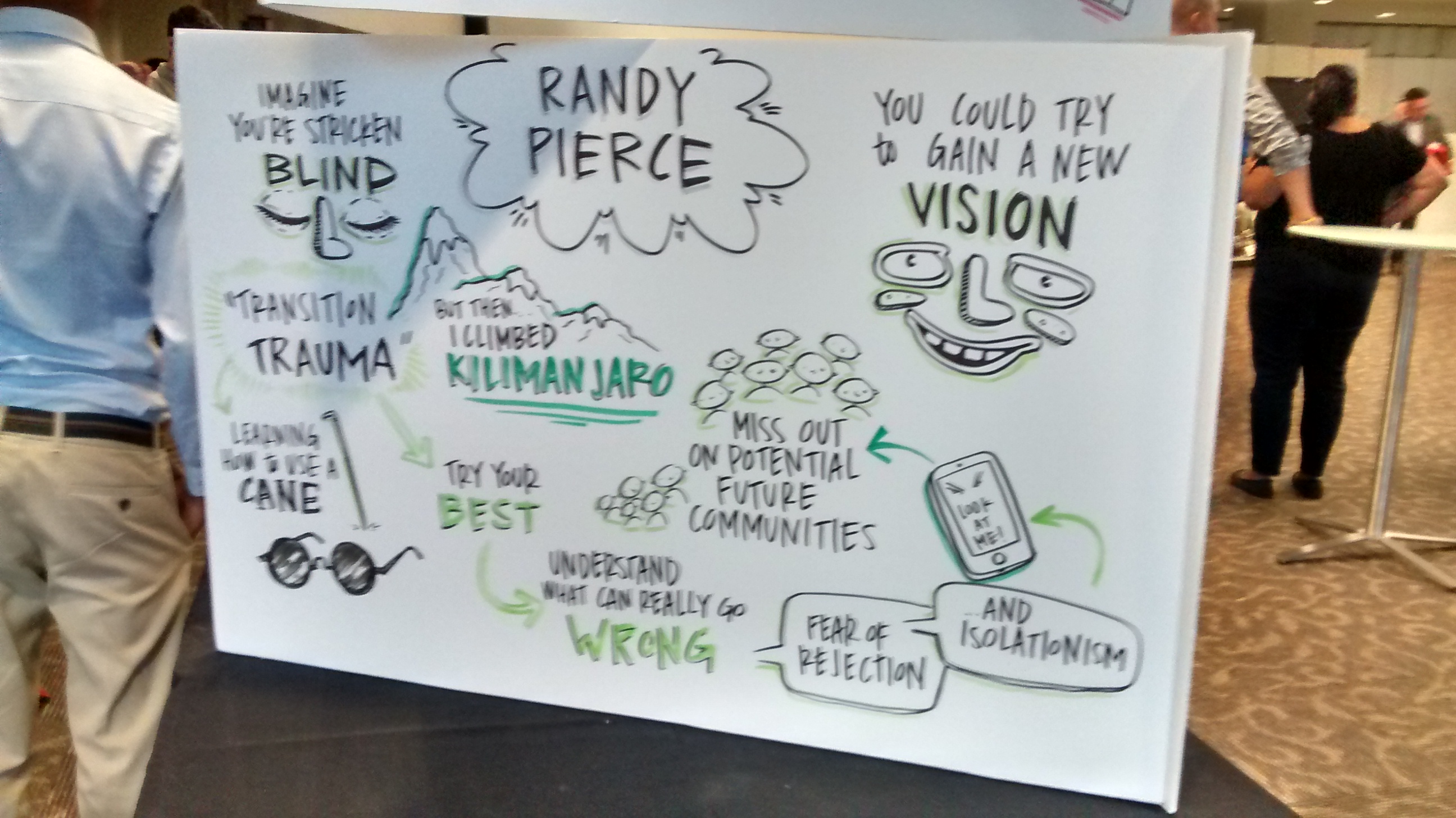You Don’t Need Sight to Have Vision: Randy Pierce at TEDX Springfield

Randy Pierce, an athlete who recently climbed Kilimanjaro, enjoys a spectacular view or a great sunset—even though he happens to be blind. Just because he can’t see it and has to have it described doesn’t mean he can’t enjoy. His talk was my personal highlight of the fourth annual #TEDxSpringfield yesterday.
Formerly sighted, he had lessons for anyone going through a difficult transition, not just losing sight. “The transition trauma moment is incredibly difficult…If we want to just live there, we can be paralyzed and stay there forever.” Anger and depression are perfectly normal when you lose something you’d always had, but it’s our choice about whether to remain stuck there, or use the trauma to springboard growth. He shared a powerful example of this from his own experience learning to use a blind cane.
While the blind cane was the tool that let me walk around safely, it was also my scarlet letter that let me feel less than, feel their pity, their lack of understanding…
In those early stages, you might be angry, depressed, enthused, in denial. I was all of those. I broke my cane and threw it away, focused on the risk management of how people would react to me… I accidentally knocked over a toddler [too low to the ground to enter Pierce’s sensory awareness] who didn’t have the warning of my cane. I let my vanity restrict me and it caused damage. A really good eye-opener on evaluating more of the risk and what is the right way to manage it.
Once, he asked if anyone was sitting in a bus seat, and hearing no response, plopped himself in the lap of a woman too shy to answer his query. And this, too, was a teachable moment for Pierce:
I can mitigate the challenge of social interaction. I wear glasses so others are not upset by my eyes shaking back and forth. I could have said “if you’re sitting there, please say hello so I don’t sit in your lap,” instead of “is anyone sitting there?”
What he learned from these early experiences is that the risk of being rejected by others is a lesser risk than the risk of failing to connect with those who are ready.
Reach out and connect with people. Make it safe for them. Take a way the risk of rejection for THEM. But how much greater risk is isolation? Make the risk of a little rejection and understand that [not all will work out]. People look for the safety of the community they have in their pocket (phones). But think about how many lost future communities [never occur because we isolate ourselves in our phones and ignore the people around us].
Pierce choses a dynamic, almost Mandela-like optimism and a methodical approach. He achieved an athletic feats that trips up even 90 percent of sighted people: grabbing a moving trapeze and using it to ring a bell.
I have plenty of points of darkness in my life. But how long do I have to wait until I put my focus to the dawn that’s coming, the vision? If you get that vision, there’s a great dawn ahead of you in many ways…Vision is always going to be waaay more important than sight.
See tomorrow’s post for other highlights of #TEDxSpringfield

